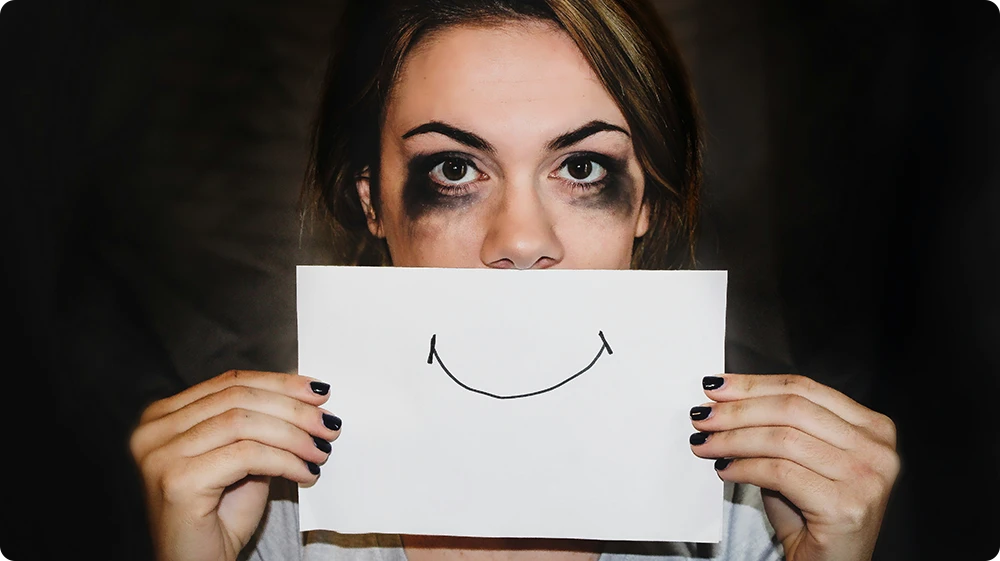Have you ever been called something that stuck with you, “troublemaker”, “too sensitive” ,“not good enough”?
These labels may seem harmless, but they can shape how others treat us and how we see ourselves. Labelling people is more than just a figure of speech; it’s a powerful psychological process that can reinforce stereotypes, fuel discrimination, and even impact mental health.
Studies in cognitive psychology and sociology show that labels can lead to self-fulfilling prophecies, where people begin to believe and act in accordance with what they’re called.
In this article, we’ll unpack what labelling means, how it affects identity and emotions, and why breaking free from limiting labels is vital for mental and emotional wellbeing.

What is labelling?
Labelling is the process of assigning a name, category, or characteristic to a person based on limited information, often a single behaviour, appearance, or background. While this can help us quickly make sense of the world, it often comes at a cost: reducing individuals to one-dimensional versions of themselves.
- Labelling is a shortcut our brain uses to categorise people or behaviours, often based on assumptions rather than full understanding.
- It becomes problematic when these labels are negative, inaccurate, or applied too broadly.
- Examples of common labels: “lazy,” “attention-seeker,” “overachiever,” “failure,” “addict.”
Aspect | Explanation | Example/Notes |
Cognitive Distortion | Labelling is a mental shortcut where one trait is used to define a person completely. | Labelling someone “irresponsible” for missing deadlines, without context. |
Labelling Theory | Society defines deviance based on reaction, not just action. | Primary deviance: Skipping school once Secondary deviance: Being labelled a “troublemaker” and acting accordingly. |
Positive Labelling | Some labels support identity, connection, and access to help. | Labels like “ADHD,” “musician,” and “LGBTQ+”, when self-chosen, can be empowering. |
When Labels Harm | Labels can divide, stereotype, and limit personal growth. | Creates “us vs. them” mentality; encourages internalised stigma. |
How Labels Can Be Helpful
While labelling people is often seen as harmful, not all labels are negative. When used thoughtfully, labels can provide clarity, build connection, and offer access to support. The key is whether the label empowers the person or limits them.
- Promote Self-Understanding
Receiving a label, such as a medical or psychological diagnosis, can help individuals understand their behaviours, thoughts, or struggles. For example, learning you have ADHD or anxiety can explain long-standing challenges and reduce self-blame.
- Foster Community and Belonging
Labels like “introvert,” “queer,” or “neurodivergent” allow people to find others who share similar experiences. This sense of belonging can reduce isolation and help people feel seen, heard, and accepted.
- Enable Access to Support and Resources
In schools, workplaces, or healthcare systems, certain labels are necessary to access accommodations, services, or legal protections. A student with a “dyslexia” label might receive additional learning support, or a person with a disability label may qualify for workplace adjustments.
- Empower Through Identity and Advocacy
Self-chosen labels can become sources of strength and purpose. Labels like “survivor” or “activist” reflect resilience and a reclaimed narrative. These labels can also fuel advocacy, allowing individuals to speak up and support others in similar situations.
- Simplify Complex Communication
Labels offer a shorthand for describing traits or needs. Saying “I’m an introvert” or “I live with anxiety” communicates a complex experience quickly, helping others understand without long explanations, especially in professional or therapeutic settings.
- Support Growth and Validation
When used appropriately, labels can validate someone’s experience and offer a framework for growth. Knowing there’s a name for what you’re feeling, or that others feel the same, can be the first step toward healing and self-acceptance.
- Provide Structure in Therapy and Education
Labels are used in therapeutic models (like CBT or DBT) to help people recognise patterns, name emotions, and develop coping strategies. In education, they can guide tailored support plans and help teachers better understand a student’s learning style.
Labels can shape lives, for better or worse. Want to make a real difference in how you respond to mental health challenges?
Join our Mental Health First Aid courses and gain the skills to recognise the signs, listen without judgment, and offer the right support when it matters most.
Empower yourself to help. Break the stigma.
Book your spot today.
How Labels Can Have a Negative Impact
While labels can sometimes offer clarity, they often do more harm than good, especially when applied without care or understanding. Labelling someone can shape how others see them, how they see themselves, and how they behave over time.
So, what is labelling in this context? It’s the act of defining a person by one trait, behaviour, or experience, like calling someone “lazy,” “overemotional,” or “unstable.” While these labels may seem minor, they can stick, shaping the person’s self-image and influencing how others treat them.
Emotional and Psychological Effects
Labelling emotions, such as calling someone “too sensitive” or “dramatic”, can invalidate their feelings, causing them to bottle things up or doubt themselves.
Over time, people may internalise these labels, believing they are the label: “I’m just difficult” or “I’ll never change.”
Social and Discriminatory Consequences
- Labels often lead to labelling discrimination, especially when linked to race, gender, mental health, or social class.
- For example, someone labelled as “a troublemaker” in school may be treated unfairly, leading to exclusion, underachievement, or even self-fulfilling behaviour.
The Cycle of Self-Fulfilling Prophecies
- When someone is repeatedly called things like “lazy,” “difficult,” or “a failure,” they may start to believe it.
- This belief can shape their self-image and influence their behaviour, even if the label isn’t accurate.
How Labelling Discrimination Affects Mental Health
Labelling discrimination happens when people are judged or treated unfairly based on labels tied to race, gender, mental health status, disability, or social background. These labels often carry stigma and assumptions that can deeply affect a person’s mental and emotional well-being
Mental Health Impacts of Labelling Discrimination:
Increased Anxiety and Stress
Being labelled as “unstable,” “dangerous,” or “unreliable” because of a mental health diagnosis or identity can lead to chronic stress, social anxiety, and fear of judgment.
Low Self-Esteem and Self-Worth
Constant negative labelling can cause individuals to internalise these views, leading to feelings of worthlessness or shame.
Social Isolation
People who are labelled may withdraw from others to avoid being judged or misunderstood, resulting in loneliness and further mental health struggles.
- Barriers to Seeking Help
Fear of being labelled or judged often prevents individuals from opening up or accessing the mental health support they need.
Reinforced Stigma
Discriminatory labels reinforce harmful stereotypes, making it harder to talk openly about mental health and reducing community empathy.
Conclusion
Labelling people may seem harmless or even helpful at times, but it can carry deep and lasting consequences. Whether it’s dismissing someone’s emotions, reinforcing stereotypes, or creating barriers to mental health support, labels often do more to confine than to clarify. Understanding what labelling is and how it affects emotions, identity, and social dynamics is the first step towards change
FAQs
What is labelling in psychology and mental health?
Labelling is the act of assigning a fixed identity to someone based on limited behaviour or traits, often leading to stigma.
How does labelling affect a person’s emotions and identity?
It can damage self-esteem, create emotional distress, and make people internalise negative beliefs about themselves.
What is labelling discrimination?
It’s when people are judged or excluded based on labels tied to race, gender, mental health, or ability.
Can labels ever be helpful?
Yes, when chosen by the individual, labels can provide understanding, support, and a sense of belonging.
How can I avoid harmful labelling?
Use respectful language, focus on the person, not the label, and stay open-minded in your interactions.
Explore Our First Aid Courses:
Emergency First Aid at Work
A short, hands-on course designed for low-risk workplace settings. It equips participants with essential skills to respond confidently to medical emergencies.
First Aid at Work
A comprehensive, Ofqual-regulated Level 3 qualification delivered over three classroom days. Perfect for first aiders in high-risk environments like construction sites, warehouses, or manufacturing units.
Paediatric First Aid
A two-day, Ofqual-regulated course focused on first aid for infants (0–1 year) and children up to puberty. Ideal for childcare providers, teachers, and parents.
Basic First Aid Course
An introductory, self-paced course suited for individuals seeking a general understanding of first aid or a quick annual refresher.
Advanced First Aid Course
A fully online, self-paced Level 3 program offering in-depth knowledge for those looking to expand their first aid skills beyond the basics.





